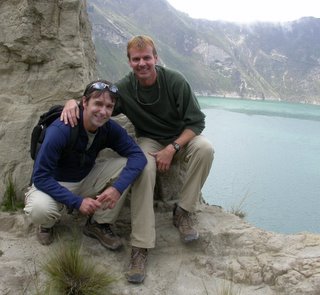Book notes: State of Denial
From State of Denial by Bob Woodward
- The president met privately with Kissinger every couple of months, making him the most regular and frequent outside adviser to Bush on foreign affairs. Kissinger sensed wobbliness everywhere on Iraq, and he increasingly saw the situation through the prism of the Vietnam War. For Kissinger, the overriding lesson of Vietnam is to stick it out. In his writing, speeches and private comments, Kissinger claimed that the United States had essentially won the war in 1972, only to lose it because of the weakened resolve of the public and Congress.
- George Tenet and his counterterrorism chief Cofer Black met with Condi Rice on July 10, 2001 and went over top-secret intelligence pointing to an impending attack and “sounded the loudest warning” to the White House of a likely attack on the U.S. by Bin Laden. Rice was polite, but, “They felt the brushoff.” The meeting was never disclosed to the 911 commision.
- Rumsfeld and Bush's father, the former president, couldn't stand each other. Bush Senior didn't trust Rumsfeld and thought he was arrogant, self-important, too sure of himself and Machiavellian. Rumsfeld had also made nasty private remarks that the elder Bush was a lightweight. Card could see that overcoming the former president's skepticism about Rumsfeld added to the president-elect's excitement. It was a chance to prove his father wrong.
- At times Rumsfeld would not return Rice's phone calls when she had questions about war planning or troop deployments. She complained to Rumsfeld, who reminded her that the chain of command did not include the national security adviser.
- Sometimes there would be a handout for the president with 140 pages, and the lesser beings like Miller would be allowed to see only 40 of them. On one occasion, Rumsfeld came to a meeting without enough briefing packets for all the principals, so Rice wound up looking on with the person next to her.
- At times Rumsfeld would not return Rice's phone calls when she had questions about war planning or troop deployments. She complained to Rumsfeld, who reminded her that the chain of command did not include the national security adviser.
- In the days after Hurricane Katrina hit New Orleans with devastating effect, Bush decided more troops were needed and asked Card to relay the message to Rumsfeld. "You know I don't report to you," Rumsfeld said. "I know you don't report to me," Card replied. "You report to the president. But believe me, he would like you to do this." "I'm not going to do it unless the president tells me."
- Every six weeks or so, Card tried to have a private, candid session with first lady Laura Bush to hear her concerns. [Gary thinks Card wanted to make sure George was staying off the booze]


<< Home